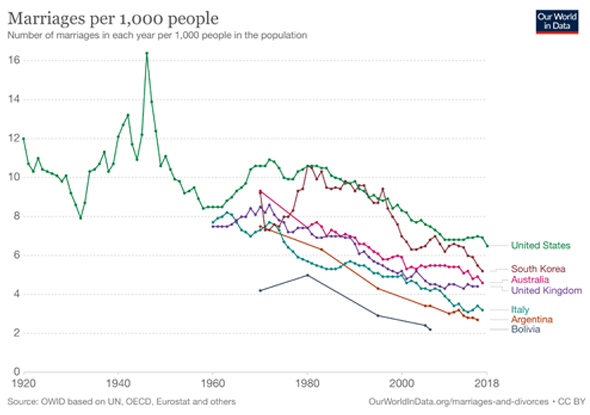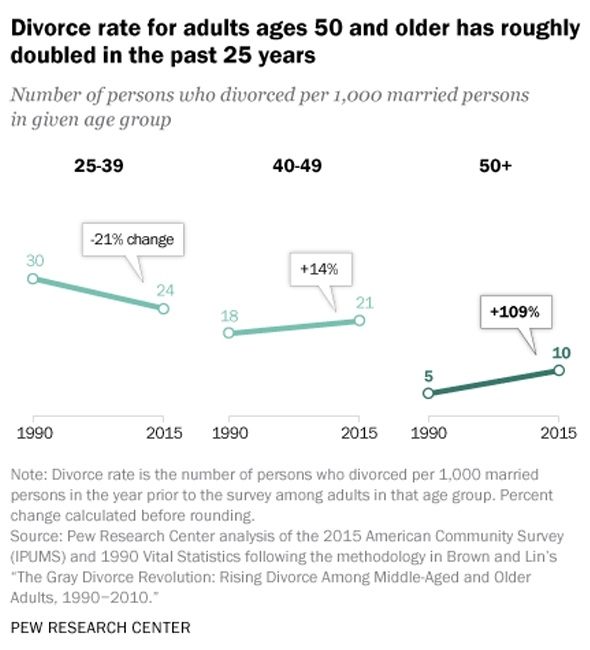How To Navigate Divorce Later In Life

- This blog contains affiliate links, which we may receive a commission for purchases. The decision is yours, whether or not you decide to buy.
Divorce is devastating at any age but with a divorce team in place to cover the emotional, financial and legal issues you are on a good path to accept that the end of a marriage can be the most empowering, and life-affirming event.
You will be able to move forward in your life and embrace a happier fulfilling future. It will not happen overnight and you need to work at it but believe you can make it happen.
Almost three years ago, I discovered my husband of 24 years was having an affair and this was not the first time. I already had suspicions for many months and my intuition told me it was a fact.
Even though ‘I knew’ he was having an affair I was in denial and this is common as our brains are programmed to crave certainty, they dislike uncertainty.
A bit like the fight and flight response. Because the uncertainty is incredibly painful, I was in denial and I therefore refused to face my instinct. I resolved there and then to end the marriage, even though it was my decision the devastation was overwhelming.
I felt like a deer in the headlights. There I was facing a life changing experience, one that, for most of my marriage, I had least expected it to happen. I turned my experience into a positive, to be able to help others facing the same situation and retrained and became an accredited Divorce Coach.
Later life divorce is more traumatic
For many couples, later in life is probably the most difficult time to get a divorce, particularly after 20, 25 or even 30 years and if the split was not a joint decision.
There are overwhelming negative feelings filling your mind, such as “you are disposable” or “you are surplus to requirements”.
At a point in life when you were looking forward to retirement and spending more time together suddenly your dreams are dashed. The world has moved on and so have you; you are much worldlier and open minded than in previous generations.
You and your partner are more likely to have had successful careers, which does help with being on your own - emotionally, physically and financially. Nowadays many countries have divorce laws regarding pensions to ensure both parties have equal security.
Divorce later in life statistics
According to Our World in Data, overall, the trend in divorces in most ages is decreasing.

Whilst divorce is becoming less common for younger adults, divorce rates in the older age groups is on the rise: Among U.S. adults ages 50 and older, the divorce rate has roughly doubled since the 1990s.

In 2015, every 10 out of 1,000 couples aged 50 and over got divorced, which was double what their divorce rate had been in 1990. For those over 65, the increase was even higher and had roughly tripled in 25 years.
In the UK similar patterns are emerging whilst divorce is in decline, 10 years of data has shown a 28% fall in the number of divorces between 2005 and 2015.
But older people are bucking the trend. In the same period, the number of men divorcing aged 65 and over went up by 23% and the number of women of the same age divorcing increased by 38%.
Later age divorce is often referred to as the ‘Grey’ or ‘Silver’ or ‘Silver splitters’ divorce. I do not like these terms as feel they are ageist. I am a true believer in bucking trends and, regardless of hair colour, our outlook is anything but grey and we can colour our hair as we wish!
We can have a new colourful life without age defining what we can or can’t do or how we should look for ‘our age’!
Reasons why couples divorce in later life
Life expectance
Going back 100 years the life expectancy for a male was 48 and 51 for a woman. So, marriage was naturally shorter. It was easier to stay married then! Maybe we are not really programmed to be married for 30 years!
However, a German study of more than 100,000 people across Europe showed that the very fact of being married knocks 1.4 years off the average wife’s lifespan and adds an extra 1.7 years to a husband’s!
It concluded that the stress of leading dual roles as working women and home keepers is one of the key elements which is killing off female spouses. Now that couples can be together longer, they are more likely to end up parting company.
Better health care and understanding of the importance of keeping mentally, physically and psychologically active has not only prolonged life but made later years life more active.
If one partner has an active lifestyle and the other has a passive one this can cause a divorce as one may wish to seek a more compatible partner who suits his or her interests and attitudes.
Often retirement can be a catalyst in a divorce as one partner may look on it as an opportunity to do more whilst the other may wish to just relax and take things easy.
Divorce is no longer a social stigma
Going back only two generations divorce was a social stigma and for that reason many couples opted to stay together. This is no longer a barrier.
It is better to leave an unhappy marriage than live the rest of your days regretting staying because of what other people may think, especially as longevity means the opportunity to start a new life.
Growing apart in an empty nest
.jpg)
When children leave home, one partner or both feel the reason for being together has come to an end. They feel that over the years the day-to-day family issues have overridden the emotional attachment they once had.
The duty to stay together is no longer present and suddenly they perceive that the children were the only thing they still had in common.
Couples may have realized that over the years they have grown apart and they have lost the spark they had when they first married.
In retirement there is more time to sit back and analyze a marriage, thinking of what could have been missed.
There is an element of romanticism about leaving and having great adventures, and, of course, that can happen, but realism needs to be in the thought process.
Subsequent marriages
Another reason for later divorce is that it is more likely among those who have been married multiple times.
Infidelity
Infidelity is just as likely to be the cause of a divorce later in life. The modern world makes it so much easier at any age to have affairs. Over 55’s are actually slightly more likely to cheat.
.jpg)
A UK survey by Saga Zone (2008) the social networking site for over-50s, found that 24% of those aged 18 to 34 had been unfaithful, compared with 28% of the over-55s.
The differences in their attitudes towards their affairs were far more marked: while 54% of the younger people polled regretted what they had done, only 34% of the over-55s felt regret.
These studies findings are supported by a later USA study by the Institute of Family Studies found that in 2016, 20% of older people indicated their marriages were adulterous, compared to 14% for people under 55.
Longer relationships weren’t exempt from being affected by affairs; data found that most of the people who reported having extra-marital sex have been married for between 20 and 30 years.
Being cheated on later in life can be devastating after being together for so many years. The loss is double fold as not only lose your lover but also your best friend.
Sexual Differences
Sexual incompatibility is often cited by my clients as being a catalyst for a divorce, sex is still important in older couples but health issues may result in one or both partners not being sexually satisfied.
In later life men can suffer from erectile dysfunction which can be equally frustrating for both couples, although most ED can be treated successfully. Women going through the menopause may find that their libido is not what it was and the effects of the menopause can make sex less enjoyable.
Frequency of sexual relations can also be an issue, with one partner not wishing to have sex at all or infrequently.
Addictions
Addictions of one kind or another can also be a reason for divorce. In the USA it is the third most frequently cited reason.
The problem with addictions is that they are progressive and hence over time they gradually weaken a marriage, often coming to a head in later years.
Addictions permeate every aspect of a relationship. Although there is a plethora of help to combat them only the addicted person can want to be cured, if they don’t often the result is divorce. Alcohol is the most frequent addictive problem in older age group divorces.
.jpg)
Whilst most people are able to incorporate alcohol into their lives in a healthy and moderate way others struggle to maintain control over their consumption, to the extent that it devastates the relationship.
Recent research shows that where one partner drinks more than the other significantly increases the likelihood of divorce.
4 ways to Navigate Divorce in Later Life
1. Emotional issues
Age is not a defining moment these days in the quest to start a new life. It is an opportunity to rediscover yourself and can be very liberating. Find a safe, supportive, non-judgmental and understanding environment.
2. Legal issues
It is very important to employ a skilled lawyer who has experience of later life divorce.
3. Financial issues
Later life divorce is much more complicated and critical in terms of division of retirement benefits, confusion over beneficiaries, complicated marital estates to divide up, and health insurance.
Additionally, a financially dependent spouse may feel they need more support given the reduced likelihood of starting a career late in life, and a financially supporting spouse may be worried about their ability to keep up support payments as they slow down or retire.
You have less time to recover any losses that occur in a divorce. Plan your future and get a financial expert who has experience of later life division of assets. Do co-ordinate your legal and financial advice to be sure that nothing falls through the gap.

4. Adult children
Whilst you may think that with adult children may be less problematic in a divorce due to custody and child caring arrangements not being an issue.
Parents divorcing for children at any age is problematic and traumatic, whether they are 6 or 26.
Adult children can get dragged into later divorces on an emotionally level, so on a legal and financial level estate planning and postnuptial agreements may also need to be addressed as you also need to plan future expectations not just for each other but your family too.
Navigation aims
My approach is holistic as I am a great believer in the mind and body working together. What is in your body is in your brain.
I believe you need to harmonise your body with your mind to operate at full capacity. I used this approach in my divorce journey and recognised the multi-faceted benefits.
- 1. I‘ll help you banish the stigma that still surrounds divorce and prove that the end of a marriage can be the most empowering, and life-affirming event.
- 2. Hold your hand to cross the bridge and navigate the emotionally troubled waters.
- 3. Work with you through each step of your painful situation with strategies to enable you to move forward in your life.
It is my job to be your co-navigator on your journey, to support, educate and guide you within a safe, supportive, non-judgmental and understanding environment as you move into a new and improved life.
Age is not a defining moment these days in the quest to start over. It is an opportunity to rediscover yourself and can be very liberating.
.jpg)
I personally found this and realised that I should have left my ex much earlier. Today there is more support than ever to help you cope, I have seen my clients start a new and happy chapter in their lives, often finding new love in the process.
If you wish to find another partner there are many opportunities for your age group now. However, you may decide that this is your time and prefer to live on your own and embrace a life on your terms which is equally liberating.
Written by Janet Henson Divorce and Narcissistic Recovery Coach jhdivorcecoaching.com
PHOTO CREDIT: AHMED ZAYAN ASHLEY BYRD FREEPIK BHH SINGAPORE PHIL HEARING ESTHER ANN
You may also like
Books
Buy now from Amazon
Podcast
Sara Davison has created Heartbreak to Happiness podcast. If you’re hurting or struggling with a break up and you’re feeling shocked, betrayed, devastated, and alone then this podcast is for you. Now is the best time to minimize your own suffering in this process by listening in on the most empowering and best relationship advice available.
Articles
- Getting Back With Your Ex: The Pros And Cons
- Busyness And Relationship Breakdown
- Divorce And Online Dating
Events
Practical tips & advice designed to help people going through divorce, whether online or in person.
Useful links
Here's a selection of organistaioins from parenting to finance to help you with your divorce.
Coaching | Counselling professionals
Related Posts
-

The Real Cost of Divorce: Hidden Expenses and Smart Savings
-

Support For Men Going Through Divorce: Finding Community, Guidance, And Strength
-

Is Your Phone Ruining Your Marriage? The Real Link Between Social Media And Divorce
-

5 Essential Tips For A Joyful, Stress-Free Christmas As A Divorced Or Divorcing Parent
-

How to Rebuild & Heal Your Life After Divorce

.jpg)
.)





.jpg)

